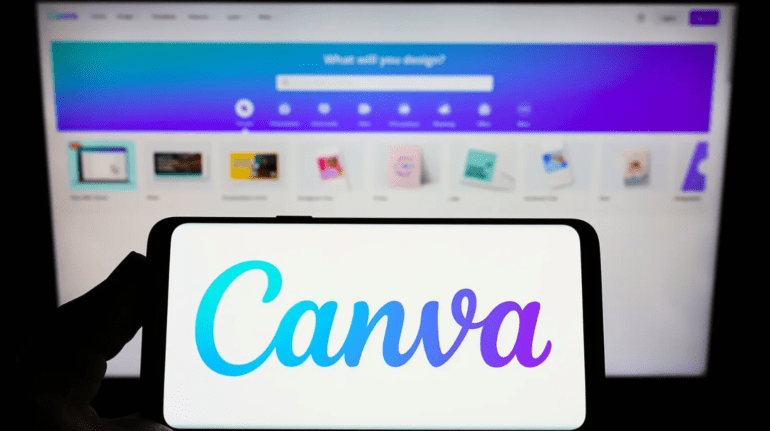TL;DR:
- Canva unveils Magic Studio, a game-changing AI toolset, in collaboration with Runway AI.
- Magic Studio introduces generative AI tools, including Magic Switch, Magic Media, and Magic Design.
- Generative AI allows users to create images, text, and video via prompts.
- Runway AI, backed by $141 million in funding, brings Gen-2 AI to Canva, enhancing video generation capabilities.
- Canva faces competition from tech giants like Adobe and Nvidia in the generative AI space.
- Stringent safeguards are in place to prevent AI-generated deepfakes on Canva.
- Canva launches Canva Shield initiative for advanced trust, safety, and privacy.
- Getty Images also enters the generative AI realm with a focus on ethical content generation.
Main AI News:
Celebrating its remarkable 10-year journey, Canva, the leading digital design platform, has unveiled Magic Studio, an innovative AI-powered toolset that promises to revolutionize visual content creation. Developed in collaboration with Runway AI, Magic Studio serves as an integral addition to Canva’s premium professional plan, aimed at enhancing the capabilities of generative AI in the platform.
Within the Magic Studio suite, a spectrum of generative AI tools is introduced, each offering a distinct advantage. Magic Switch, for instance, empowers users to effortlessly transform designs into diverse formats and languages. Magic Media harnesses Runway’s Gen-2 AI technology to seamlessly convert text into captivating photos and videos. Meanwhile, Magic Design takes automation to the next level by simplifying the creation of videos and presentations.
Generative AI, the bedrock of Magic Studio, empowers users to conjure up images, text, and video content by feeding prompts into an AI chatbot, which in turn draws from a vast language model to generate responses.
The resounding success of OpenAI’s ChatGPT, launched in November, has spurred significant investment in AI developers like Runway AI. In June, Runway announced a staggering $141 million funding round led by industry giants Google, Nvidia, and Salesforce. Other tech titans like Amazon and Microsoft have also committed substantial investments to advance generative AI, underlining its transformative potential.
Runway CEO Cristobal Valenzuela enthusiastically announced, “Starting today, the complete power of Gen-2 will be accessible directly in Canva with its new Magic Media app, providing direct access to the best AI video generation model for Canva’s 150 million monthly users.”
While Magic Studio is a recent addition, Canva’s Head of AI Products, Danny Wu, emphasizes that Canva’s engagement with generative AI is not newfound but rather an expansion of a longstanding commitment. He stated, “We’ve been looking at AI for a number of years…We saw so many opportunities for AI technology to help our users design even easier and just make complex tasks more simple.”
Established in 2013, Canva, headquartered in Australia, has evolved into a versatile, free-to-use platform, empowering users to craft a wide range of visual content, from YouTube thumbnails to social media banners and video presentations. Although the basic platform is free, access to advanced features, including Magic Studio, requires a monthly subscription.
While Canva boasts an impressive user base exceeding 150 million, it faces formidable competition from generative AI heavyweights like Nvidia and Adobe. Adobe, for instance, introduced its generative AI tool, Firefly, in May. Furthermore, OpenAI integrated a Canva plugin for the subscription-based ChatGPT Plus in September, allowing users to create images in GPT-4 through written prompts.
While specific details about the AI models employed in Canva’s new platform remain undisclosed, Wu shed light on Canva’s AI approach, which entails developing proprietary models tailored to the design space, integrating top-notch available models to consolidate advantages in one place, and collaborating with esteemed partners like Runway for video-related innovations.
As AI becomes increasingly ubiquitous, concerns about AI-generated deepfakes have surged over the past year. Wu reassures that Canva has implemented stringent safeguards to prevent misuse of its platform. He elaborated, “As part of our trust and safety [policies], we don’t allow our AI to generate images of popular or public figures or known persons as well as third-party intellectual property.” Furthermore, Magic Studio adheres to policies that exclude any content related to medicine or politics, reflecting Canva’s commitment to prioritizing creative use cases.
In tandem with Magic Studio’s launch, Canva introduced the Canva Shield initiative, a comprehensive suite of advanced trust, safety, and privacy tools infused with artificial intelligence. Canva Shield encompasses features such as AI indemnification for eligible enterprise users, robust content moderation systems, and customizable AI privacy settings. Additionally, Canva is dedicated to investing over $200 million in creators in the forthcoming years.
Notably, Getty Images also entered the generative AI arena with a “safe” tool for commercial use, emphasizing its adherence to ethical content generation guidelines. Like Canva, Getty Images refrains from utilizing brands’ intellectual property or recognizable public figures that could potentially be exploited to create deepfakes.
Danny Wu summarized the driving force behind Canvas AI endeavors, stating, “The reason why we’re building Magic Studio and building AI is because it’s a really powerful way to help our users do tasks they never could have.” Canva’s commitment to innovation and empowering its users through AI-driven tools remains unwavering as it charts a path into the future.
Conclusion:
Canva’s collaboration with Runway AI to introduce Magic Studio signifies a significant stride in the market for AI-powered visual content creation. With competition from industry giants and a commitment to ethical use, this move underscores the growing demand for user-friendly AI tools in the creative sector, promising a dynamic future for content generation platforms.

